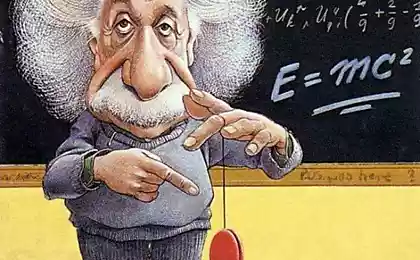440
What is the affect, or why we can't always stay

© Adam Voorhes
What quality, according to Plato, unites all soldiers, how emotions affect our memory and what needs to happen in the soul of the murderer, that his sentence was commuted.
The expression "heat of passion" has moved from criminal and psychiatric practice in our daily lives. But the affect is different from the usual emotions and when it turns into pathology? To properly use this term, remember its origin and the history of its interpretations in psychology and philosophy.
Emotion is the psychophysiological process which reflects the unconscious personal assessment of the current situation. Positive changes cause us joy, trouble, sadness or irritation, foreign aggression, anger or fear. And the affect is very intense emotional state that lasts long, but causes a pronounced somatic manifestations changing heart rate and respiration, spasm of peripheral blood vessels, increased sweating, loss of coordination. The name "passion" comes from the Latin word affectus, meaning "emotion, passion".
Affective state was interested in the ancient Greeks — for example, Plato considered him one of the innate spiritual began, which also includes lust and resung depending on the type of exposure, the affects are divided into scenicheskoe (from the Greek σθένος — force), and asthenia (ἀσθένεια — impotence). Scenicheskoe affects — anger, joy — encouraged to be active, and contribute to the mobilization of forces. And asthenic affects — sadness, fear, powerlessness — relax or paralyze any activity. If the situation causing the affect of periodically repeated, the voltage gradually accumulated that may subsequently lead to the rapid "explosion". This condition is called a cumulative affect (not to be confused with cumulative effect, which is also associated with the accumulation process, but concerns not only the emotions).
But the state of passion of a person who with anger gave a fist on the table, and the person who killed someone in a fit of rage, and now can't remember how it happened, very different. The first option is a so-called physiological affect, which is natural for homo sapiens and is not accompanied by loss of self-control. We usually hit the table, because we understand that it will help us to let off steam — but under certain conditions could to refrain from this. Much more dangerous than pathological affect, caused by the disruption of the normal functioning of the psyche is short (30-40 minutes) psychotic state, during which consciousness poruchaetsya, the person begins to behave on "auto pilot" and can not stop. This condition stops as suddenly as it had begun, and after the subject feels a sharp depletion, falls into prostration and often does not remember what happened to him during the period of "loss of reality". All that was done in the heat of passion, often after the patient perceives as the perfect someone else. Good kinoindustria pathological affect — Hulk: green monster occurs when a certain degree of psychological stress in character, which can be traced on the physical parameters.
From a legal point of view, proven pathological passion is a mitigating circumstance according to the criminal code, the maximum penalty for a murder committed in this state, not to exceed three years of imprisonment. But the physiological affect is unlikely to cut any ice with the judge taking it into account only in the "cumulative" case, when a person has long suffered illegal or immoral behavior of the victim, and finally came out.
Affective state was interested in the ancient Greeks — for example, Plato considered him one of the innate spiritual began, which also includes lust, and mind. The three parts of the human soul correspond three classes in the ideal state: if a person's character was dominated by a tendency to affects, he should devote himself to the military case, the dominant mind formed a class of philosopher kings and lust — class peasants, artisans and merchants. Anyway, the passion was considered low in comparison with the beginning of the mind, obscures the mind, and therefore dangerous. It was assumed that with the passions is to fight through force of will and arguments of reason. The Christian concept of the work also involves the control of emotions.
The shift in perception of this condition occurred when Descartes and then Spinoza spoke about the role during strong emotions played by the relationship of body and soul. Descartes in his "Passions of the soul" suggested that intense emotional States reflect both mental and physiological processes, and Spinoza went even further, having concluded that the influence of intense emotion through pure reason impossible, the effect can be destroyed only by a stronger affect. "The true knowledge of good and evil, because it is true, may not impede any passion; it is capable of this only because it is seen as a temporary insanity" — considered a philosopher. However, Spinoza, the term "affect" has a broader meaning and combines any changes in the body (including the mind) resulting from interaction with the surrounding world.
In the late XIX — early XX century the concept of passion has undergone even more serious re-evaluation. The scientists of the French sociological school of Emile Durkheim and Marcel Mauss found that the influence of society on the perception of the individual directly depends on the strength of affectation. And the French anthropologist Lucien levy-Bruhl found that the evocation of affect was important in ancient rituals, like the initiation and sacrifice. He believed that primitive thinking is very different from modern logical thinking that emotions play a much greater role.
Affects interested and Freud — he concluded that the suppressed affects cause mental illness: they remain in the subconscious and continue vaguely to disturb him. Sometimes they are expressed in physical symptoms — paralysis, pain and other involuntary sensations.
How to speak
Wrong: "a concerted effort will give us a good cumulative affect ". That's right — the "cumulative effect".
That's right: "You can't make the right decision while in the heat of passion. Sit down, relax and think about this".
That's right: "Sometimes affects productivity — yesterday Sasha to celebrate, redid a bunch of things." published
P. S. And remember, only by changing their consumption — together we change the world! ©
Source: theoryandpractice.ru























